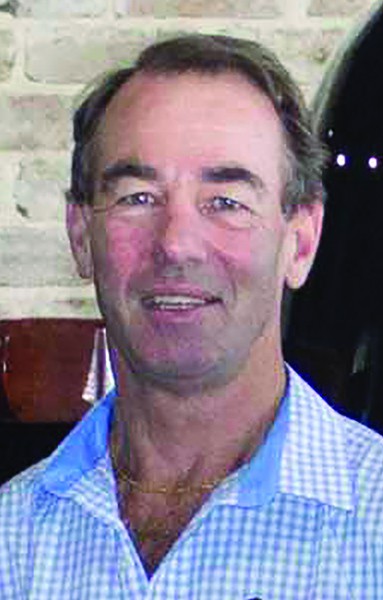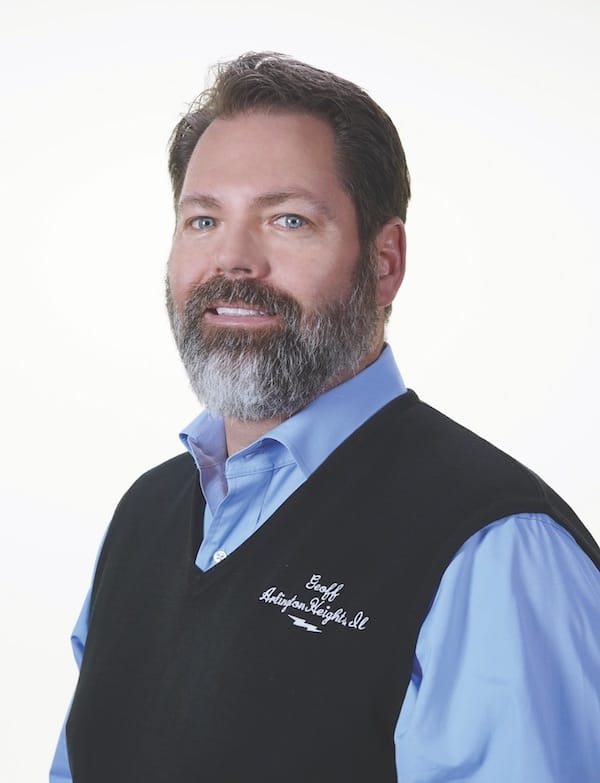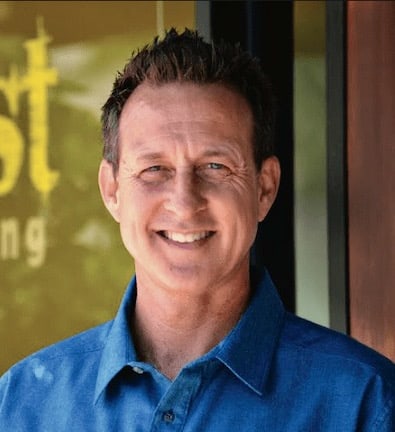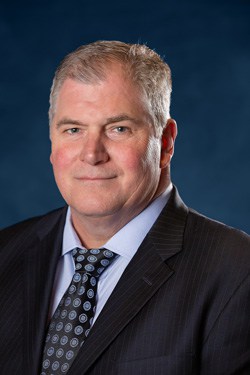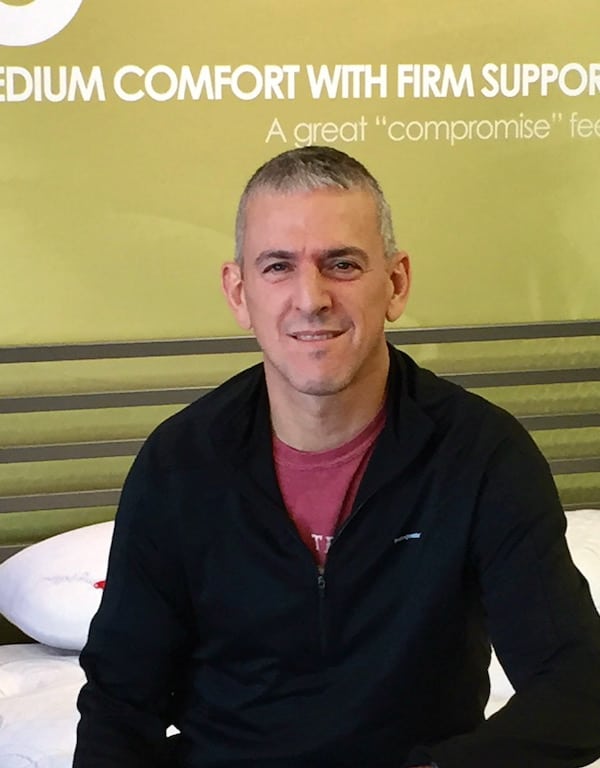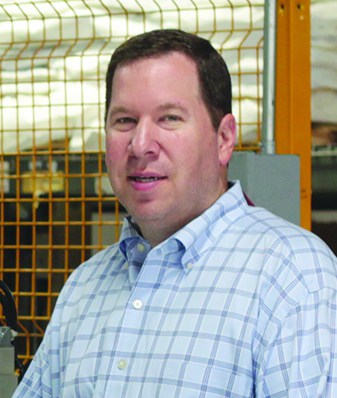Industry executives reflect on the hardships they’ve overcome and share the lessons they’ve learned during the past 12 months as the pandemic raged
Last spring, the bedding industry raced to keep employees safe from the coronavirus and their businesses viable during what quickly became a global pandemic. Some thought they were at the starting line of a 400m sprint, at worst a 10k. Turns out it was a hilly, winding endurance race that has dragged on for more than a year. And there are miles still to go.
Along the way, some manufacturers, suppliers and retailers have stumbled; a few have called it quits. But many others have thrived, discovering that they were fitter, stronger and more determined than they ever imagined.
As Joe Nashif says, looking back on the past year, he is impressed that he and his team “could do it.” “We adjusted to these big changes and kept on going,” says Nashif, president of US-Mattress.com, an omnichannel retailer based in Brighton, Michigan.
A few months into the pandemic, BedTimes checked in with sleep products industry leaders to see how the Covid-19 pandemic was impacting their businesses. Coming up on the one-year anniversary of widespread shutdowns, we went back to them to see what the long-term impacts of the pandemic have been on their operations — and how both they and their businesses have changed.
They told us they are feeling more nimble and more flexible. They are grateful for the support and resilience of their teams. And they are tired.
Read on for more insights.
Sean Pennington David Swift Alan Beard Geoff Imhof Joe Alexander Nick Bates Lila Walker Jon Stowe James Appleyard Shawn Reimold Bryan Smith Joe Nashif Alan Vonder Haar Adam Lava
1. What is the single biggest change your company has made since the pandemic began?
“Early in the pandemic we made two key strategic decisions. First, we secured multiple sources for components to prevent supply shortages. This worked incredibly well, and we’ve been in-stock throughout the pandemic. Second, we increased our boxed bed product offering to enable more
e-commerce and to ship nationwide.”
— Shaun Pennington, president of Diamond Mattress, a
bedding manufacturer based in Compton, California
“The most dramatic change we’ve made as a result of the pandemic, like many companies, is our move to a ‘work from anywhere’ environment for employees previously working in our corporate office locations. We could never have predicted that we would be out of the office for this length of time, but we’ve been incredibly pleased with how productive our teams have been, how they’ve continued to engage with each other and our customers, and how they’ve even managed to accelerate efforts in many cases.”
— David Swift, chair and chief executive
officer of Atlanta-based bedding major
Serta Simmons Bedding LLC
“We have installed measures to keep our people as safe as possible while still operating. We are taking daily temperature checks of our staff, wiping down workstations and monitoring our employees’ health as best we can.”
— Adam Lava, A. Lava & Son Co.,
a Chicago-based supplier and manufacturer
of bedding components, cut-and-sew
services and finished mattresses
“Miskelly Furniture increased its online presence in response to the pandemic. We became fully e-commerce capable. We added web chat for both pre- and post-purchase inquiries. Lastly, we worked with AVB (our e-commerce provider) and our own internal team to streamline our website, making it more consumer friendly.”
— Alan Vonder Haar (better known as “Dr. V”), director of bedding for Miskelly Furniture,
a Jackson, Mississippi-based furniture
and mattress chain
“The biggest change would be our move to managing all of our branches remotely utilizing Microsoft Teams and Zoom. Fortunately, we have very good and capable management on the ground in each of our branches, so the move to managing remotely has been more successful than anticipated.”
— Allyn Beard, director of A.H. Beard, a mattress manufacturer based in Padstow, Australia
“The biggest change we have implemented across our organization is a greater emphasis on technology to analyze our supply chain. Given the widespread challenges our industry is facing with raw material availability, we have invested in more data management processes and information systems that enable us to work more closely with our suppliers to ensure we have the materials we need to keep up with increased customer orders.”
— Bryan Smith, president and CEO of
Southerland Sleep Inc., a bedding
manufacturer and licensing group
headquartered in Nashville, Tennessee
“First, we had to adjust to a new manufacturing process, one that social distanced our employees to keep them safe. Looking back, that was something none of us were prepared for, so we relied on our network of licensees to find a solution. Sharing learnings across each location, this collaborative effort put us in a position to serve our customers quickly and keep up with increased order demands, while keeping our employees at a safe distance. Second was a change in our sales process. With limited travel, our salesforce is not spending as much time — at least physically — with buying teams or on retail sales floors. However, our team has done an incredible job continuing the dialogue with our customers and training RSAs on the benefits of our mattresses, digitally. Our newest product line, Breathe by Spring Air, is being launched 100% digitally via a YouTube video.”
— Nick Bates, president of Spring Air
International, a Boston-based licensing group
“By having a leaner organization in North America, with the integration of Marshall Mattress and E.S. Kluft & Co. into one, we were able to make changes that improved our internal communication and collaboration. The pandemic has significantly changed the way we communicate and interact by moving our interactions digitally via virtual meetings. This has helped to facilitate our vision of having unified team collaboration and has broken down a lot of silos across divisions — ultimately allowing us to work toward common business goals.”
— Jon Stowe, managing director of
E.S. Kluft & Co., a luxury bedding producer based in Rancho Cucamonga, California
“We became more engaged in connecting with our customers through social media.”
— Shawn Reimold with Ephrata, Pennsylvania-based
Martin Furniture & Mattress. Reimold manages
the store in Quarryville, Pennsylvania.
The company is part of the Martin Appliance and
Martin Water Conditioning family of companies.
“Our biggest change has been shifting to an online focus since our stores were closed for a time, and now we see reduced traffic to the physical stores. Our online business has increased immensely.”
— Joe Alexander, founder and CEO of Nest Bedding,
which is based in Albany, California, with bedding
showrooms in major cities across the country
“We’re ensuring that every aspect of the business is scrutinized more regularly — from staffing levels to stock control — as sales have fluctuated up and down through the various lockdown periods.”
— James Appleyard, sales director for Deluxe Beds Ltd., a mattress manufacturer based in Huddersfield, England
“We’ve been working remotely, and our surprise is shared by many companies: It has worked out well, so I’m not sure in what manner we’ll return to the office post-Covid.”
— Joe Nashif, president of US-Mattress.com, a pioneer of
mattress e-commerce based in Brighton, Michigan,
with brick-and-mortar stores across the state
“We’ve diversified our product line significantly by adding personal protection equipment, in addition to our bedding products. We’ve also started producing ‘nontraditional’ bedding products with the increased demand for RV mattresses. RV sales and rentals have skyrocketed.”
— Lila Walker, president of Jomel Seams Reasonable,
a cut-and-sew division of Jomel Industries, based
in Hillside, New Jersey
“I don’t believe we can point to any ‘single biggest change.’ We’ve constantly adjusted many different things, as frequently as necessary.”
— Geoff Imhof, furniture and mattress buyer for Abt, a retailer of electronics, appliances, furniture, mattresses and more located in the Chicago suburb of Glenview, Illinois
2. What other long-term changes has the pandemic spurred at your company?
“Because we had to change how we worked and also rode the revenue roller coaster, we are more nimble — mentally and culturally — to make changes.”
— Nashif, US-Mattress.com
“I see long-term changes moving forward as it relates to business travel. As mentioned earlier, our digital sales initiatives are quite effective, and we have learned that we don’t necessarily have to fly around the country to do sales presentations. With our staff spending more time being effective instead of flying on an airplane or making long drives in their vehicles, we are still making things happen and are reaping the financial benefits without all the expenses.”
— Bates, Spring Air
“We have a greater focus on being lean, efficient and data-driven with the key goal of keeping our retailers stocked with top-quality products and price points. We were already lean and data-driven, but the pandemic took it to the next level. Coming out of the initial shutdown, we found leaner ways to operate, and the supply chain disruptions pushed us to fine-tune our reporting and accountability. Both of these have driven our efficiencies up significantly.”
— Pennington, Diamond Mattress
“We are working more remotely and learning how to service our customers’ needs from a distance. Holding no in-person meetings, design sessions or dinners to discuss strategy has forced us to reinvent these critical business processes.”
— Lava, A. Lava & Son
“The pandemic has significantly accelerated the shift toward digital channels. Now more than before, it plays an essential role in our relationship with our retailers and consumers, as well as in all aspects of our business. Like many, we had to adapt quickly, and we see keeping these changes long-term. For instance, we created virtual showroom experiences to show retailers our excellent product offerings. We also continue to improve our brands’ online presence and awareness, and help our partners elevate our brands’ experience on their websites. In addition, we have invested in increasing brand awareness through strategic digital marketing efforts and we will continue this year.”
— Stowe, E.S. Kluft
“This past year created a platform to drive systemic change across our organization. There were many things we were already making good progress on — how we communicate with our teams, engagement, enhanced supply chain, stronger partnerships with our retailers — but the pandemic really drove us to accelerate our efforts in all of these areas. During the pandemic, for the first time, more mattress sales were transacted online than in-store. It quickly became clear that no matter the industry, retailers who were better prepared with an omnichannel strategy performed better than others without one. This reinforced what we already knew to be true — that it’s critical to deliver a robust omnichannel strategy for our consumers.”
— Swift, SSB
“We’ve added more online support staff and are re-evaluating physical storefront expansion.”
— Alexander, Nest Bedding
“We’ve consolidated operations in an effort to become more nimble and able to pivot production quickly and efficiently. We’ve worked closely with other suppliers to help with increased demand, especially when closures have happened. It’s also allowed us to keep a closer pulse on our inventory levels, which results in better controls for our bottom line.”
— Walker, Jomel Seams Reasonable
“As a result of the pandemic, we haven’t had to roll out new ranges of products as frequently, as launching new ranges is very challenging with travel restrictions and Covid-19 requirements. Fortunately, our current ranges are still selling very well, and we have instead encouraged our retail partners and account executives to refresh their floor stock, so that they look fresh and are appealing.”
— Beard, A.H. Beard
“We increased our digital presence in marketing, having relevant information on our website and more in-stock product.”
— Reimold, Martin Furniture & Mattress
“We’re looking more at where we source our raw materials. Is it sustainable to buy from further afield (Far East/China and Europe) rather than the U.K.? We’ve also recruited in significant positions, too (HR and production managers), as we realized that this was a step we had to make irrespective of the current situation. This has allowed our senior team to focus more on the future of the business.”
— Appleyard, Deluxe Beds
“We also implemented greater safety protocols to ensure that both our guests and associates have a clean and safe environment. We don’t see those protocols going away after the pandemic is over.”
—Vonder Haar, Miskelly Furniture
3. How have the unusual and challenging past 12 months prepared your company for future unexpected events?
“Here in Australia in 2020, we first had droughts, then bushfires, then floods, then Covid-19, then significant supply challenges. What else can they throw at us? As a result of these significant challenges, I am definitely more confident that our team can manage our business through whatever can be thrown at us.”
— Beard, A.H. Beard
“We realized that we need to react fast and be nimble. At A. Lava, we have a history of being a speedboat and not the Titanic. We are more prepared than ever to steer away from any icebergs coming our way in the future.”
— Lava, A. Lava & Son
“The past 12 months have hopefully taught both retailers and vendors that it’s incredibly important to not become too reliant on one particular source for goods and services. Historically, we’ve tried to ensure long-term success for all our business relationships. It’s important to make sure all vendors are succeeding when things are going well. It’s equally important to make sure no one vendor slips too much when the business climate changes. The vendors who’ve experienced challenges this past year are ones who seem to have limited or even single sources for their raw materials.”
— Imhof, Abt
“We are more flexible, in a better cash flow position and ready for anything!”
— Alexander, Nest Bedding
“Through the generations of Diamond Mattress, we have understood the importance of vertical integration. We make our own coils and cut our own foam. This has allowed us to bring in raw material components and handle them in-house. We own our own trucks, so despite industry disruptions in shipping, we have been able to stay on track with delivery. We have diversified our supply chains and increased our stock levels to have more buffer in our system. We have also increased our coiling and foam cutting capacity to stock and produce more goods. As we move forward, we continue to be agile, and we will look at data and our strength and expertise to continue to grow.”
—Pennington, Diamond Mattress
4. What do you wish you had known a year ago — before the pandemic started?
“How busy we would be a year later! This is a great challenge to have, yet I don’t think many of us expected business to come back as strong — and as quickly — as it did. Now we are focused on minimizing supply chain interruptions and keeping our labor force strong so we can keep up with the continued increases in demand we are experiencing.”
— Smith, Southerland
“Had we known about the supply chain shortages, limited product availability and shipping delays, we would have built a larger in-stock supply to minimize delays.”
— Reimold, Martin Furniture & Mattress
“We wish we had known that the business was going to recover so quickly. We initially cut back on inventory. This made it harder for us to fully capitalize on demand when business exploded.”
— Vonder Haar, Miskelly Furniture
“I wish we had known things would not turn out so bad, businesswise. It would have been less stressful. (Obviously, it’s a tragedy for many people, and we are fortunate.)”
— Nashif, US-Mattress.com
“I wish I would have known the stock market was going to continue to flourish despite the challenges of the pandemic.”
— Imhof, Abt
“The pandemic caught us and the entire world by surprise. I wish I would have known how long it would last, but I know no one could have guessed it. Regardless of the difficult business decisions we’ve made and the unprecedented economic, political and supply chain environments we’ve encountered, we continue to work hard to provide our partners with the best mattress products in the market.”
— Stowe, E.S. Kluft
5. What is the biggest lesson your company has learned from the pandemic?
“I would say, ‘cash is king!’ When the pandemic first struck and the retail market tanked and the stock market tanked, we were fortunate to be able to remain confident of weathering the storm by having a healthy bank account.”
— Beard, A.H. Beard
“While we may not be able to control what happens around us, we are able to control how we respond. It pays to invest in quality teammates! We are proud of the efforts they put forth each and every day to treat customers the way they would want to be treated!”
— Reimold, Martin Furniture & Mattress
“Communication is critical. Communication was — and continues to be — the recipe for moving forward with success during challenging circumstances. We drastically enhanced the way we communicate across all levels of our organization. Last year, our team came together — albeit virtually — through a series of daily and weekly conference calls with each department to set our priorities and strategies for the weeks and months ahead. We’ve maintained this schedule even today and it has now become our status quo. By ‘overcommunicating,’ we are all better aligned with our business objectives and, as a result, have become better at achieving our goals as a team.”
—Smith, Southerland
“You learn who can help in times of adversity and those who just want to sit back and wait until it’s all over. We didn’t have the luxury of sitting back, so it was revealing to see who was willing to help us decide what the ‘new normal’ would be for the company.”
— Appleyard, Deluxe Beds
“The biggest lesson we’ve learned has been around the power of our people — their resiliency, loyalty and, perhaps most importantly, their adaptability. Our teams seamlessly transitioned to a new working environment and found new ways to connect and engage with one another, with our partners and with our customers. In our manufacturing facilities, they too, had to learn a new way of working to keep each other safe — with temperature checks, social distancing, constant cleaning and disinfecting, and wearing PPE. All of our employees, no matter where they work, have doubled down to help the business navigate through these unprecedented times and help our customers be successful. It makes me incredibly proud.”
— Swift, SSB
“If you’re able to provide a great customer experience, people will find you. As other similar businesses were slow to adapt to the challenges in the marketplace, Abt just plowed through.”
— Imhof,Abt
“We learned just how strong a licensing organization can be. Coming out of the initial phases of the shutdowns, our manufacturing network came together to share materials, insights and knowledge. We had ongoing communication that far exceeded anything I had seen before. We shipped materials from one location to the next, juggling to get supplies to meet customer orders. I don’t think we realized what kind of assistance we could give each other in a time of need, and when we came together as a unified group, how important we would become for our retailers who were struggling to keep up with customer orders.”
— Bates, Spring Air
“The health and welfare of our employees, customers and fellow suppliers is really important to focus on. We’ve also learned how to better manage our supply chains, especially when launching new programs, because no one has a crystal ball to predict volumes.”
— Walker, Jomel Seams Reasonable
“The importance of communication, both internal and external, has been our greatest lesson. We now communicate with our guest (about their order) every two weeks, even if there is nothing new to update. We also share more information with our sales associates in order for them to more fully understand the supply chain and order process. This is probably the first time we have shared with them how the sausage is made.”
— Vonder Haar, Miskelly Furniture
6. What is the biggest lesson you personally have taken away from the past 12 months?
“Keep a positive attitude and lead by example. Let’s be honest: We are nearly a year into this, and people are getting fatigued. In the beginning, we all hunkered down and did what we had to do to survive and thrive in a challenging and much different environment than any of us have ever worked in before. Now our challenge is to keep people motivated and energized in this ‘new normal.’ With effective communication, alignment of objectives and goals, and positive leadership, I am in a better position to lead our teams and provide guidance where needed, while still driving the results we need to service our customers.”
— Smith, Southerland
“What doesn’t break you makes you stronger. I know that I’ve learned more about business in the last 12 months than probably the five years before and this will help me (and, therefore, my company) over the next five years.”
— Appleyard, Deluxe Beds
“For me, the events of the past 12 months have reinforced the power and need for empathetic leadership. Amid the challenges of a pandemic, we were also faced with natural disasters, social turmoil, a tumultuous political environment and more. We had employees in challenging home situations — kids attending school virtually, caring for elderly parents — and employees still considered essential workers and juggling these same challenges. All of these things taken together have reinforced the need for and importance of empathetic leadership during these times, and really all the time.”
— Swift, SSB
“I have personally taken away many lessons this past year but the biggest is to not underestimate how adaptable and agile people are when faced with challenging circumstances. I cannot tell you how proud I am of my team’s determination and resilience, and of everything we accomplished last year. The past 12 months have only made us stronger and the future looks bright.”
— Stowe, E.S. Kluft
“I’ve learned that life is fragile — it can all turn in an instant. And that my staff are superheroes.”
— Alexander, Nest Bedding
“Although remote work environments are the new thing, manufacturing can’t be done in silos remotely. I learned to change my selling techniques, especially because travel and trade shows weren’t possible this year.”
— Walker, Jomel Seams Reasonable
“For me, it was an opportunity to slow down and reflect. I wasn’t spending as much time traveling and I was spending more time with my family. I have a young son and looking back, these were some special times that I would have otherwise not been able appreciate as much when on the road. Of course, we all want to grow our businesses and that will always be there, but take the time to enjoy your family and your life, otherwise you may end up on an airplane looking at photos instead of in your living room watching your kids grow up.”
— Bates, Spring Air
“I have learned that I can’t do it all. I needed to let my employees take some of the load off of my shoulders. The stress, pressure and exhaustion that the pandemic brought is too much for anyone to handle alone. I pride myself in being able to confront any challenge but this pandemic taught me that I need the support of both my actual family and my work family, which includes our customers, vendors and employees, to get me through this time.”
— Lava, A. Lava & Son
“Through it all, I’ve found my personal happiness is less tied to business success or failure. This year, I started a program to be trained as a professional ICF (International Coaching Federation) certified coach. It’s helping me develop into a better leader and coach so I can support the team with new tools and life outlooks. It’s an extremely practical approach and has made working more fun than ever. I’m loving it. I also learned I can work remotely, which has been wonderful for myself and my family.”
— Pennington, Diamond Mattress






